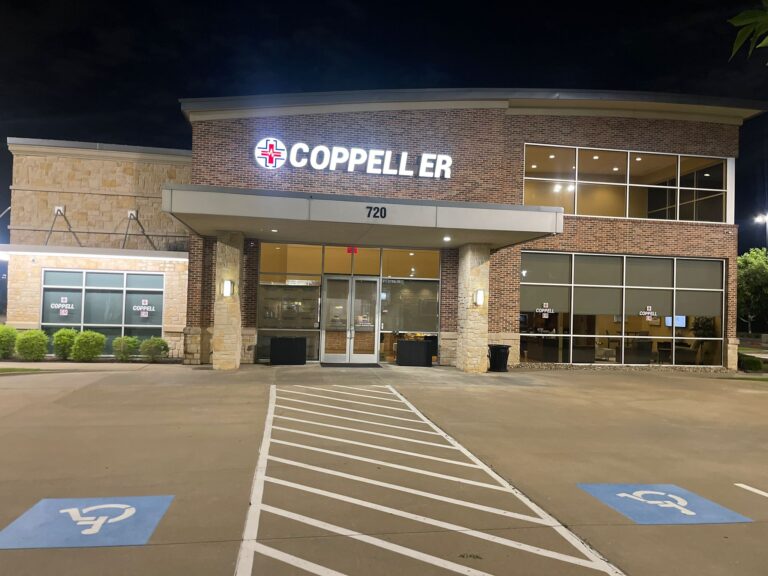Introduction
Breathing is something most of us take for granted—until it becomes difficult. Recognizing the signs of respiratory problems early can make a huge difference in diagnosing and treating conditions that impact your ability to breathe. Whether it’s a mild cough or severe shortness of breath, understanding the warning signs is essential to protect your health.
In this article, we’ll explore the top signs that indicate respiratory distress, their possible causes, and when to seek professional care. If you or a loved one experiences these symptoms, Er of Coppell is here to provide expert care and support.
Why Is Respiratory Health Important?
Your respiratory system plays a critical role in delivering oxygen to your body and removing carbon dioxide. When it doesn’t function properly, it can affect every part of your health. Early detection of respiratory issues can prevent complications and improve outcomes.
10 Signs of Respiratory Problems
1. Shortness of Breath (Dyspnea)
Feeling out of breath after moderate activity or even at rest is a common symptom of respiratory problems.
- Possible Causes: Asthma, COPD, pneumonia, or heart-related issues.
- When to Act: If shortness of breath worsens or interferes with daily activities, seek medical care immediately.
2. Persistent Cough
A cough lasting more than three weeks could indicate an underlying respiratory issue.
- Possible Causes: Chronic bronchitis, tuberculosis, or lung cancer.
- When to Act: If the cough produces blood, thick mucus, or doesn’t improve, visit a healthcare provider.
3. Chest Pain
Sharp or persistent chest pain while breathing or coughing is another warning sign.
- Possible Causes: Pneumonia, pleurisy, or a pulmonary embolism.
- When to Act: Seek emergency care if chest pain is severe or accompanied by other symptoms like shortness of breath.
4. Wheezing
A high-pitched whistling sound while breathing is a clear indicator of airway obstruction.
- Possible Causes: Asthma, COPD, or an allergic reaction.
- When to Act: If wheezing is sudden or severe, seek immediate medical attention.
5. Cyanosis (Bluish Skin or Lips)
A bluish tint to the skin, lips, or nails indicates a lack of oxygen in the blood.
- Possible Causes: Severe asthma, COPD, or heart failure.
- When to Act: This is a medical emergency and requires immediate care.
6. Fatigue and Weakness
Chronic fatigue and weakness may indicate insufficient oxygen delivery to your body.
- Possible Causes: Sleep apnea, anemia, or advanced lung disease.
- When to Act: If fatigue persists despite adequate rest, consult a healthcare provider.
7. Frequent Respiratory Infections
Recurring colds, bronchitis, or pneumonia may signal an underlying problem.
- Possible Causes: COPD, immunodeficiency, or cystic fibrosis.
- When to Act: Seek care if infections become frequent or severe.
8. Rapid Breathing (Tachypnea)
Abnormally fast breathing may indicate respiratory distress.
- Possible Causes: Asthma attack, pulmonary embolism, or anxiety.
- When to Act: Rapid breathing combined with chest pain or dizziness requires immediate care.
9. Mucus or Phlegm Production
Excessive mucus production, especially with unusual color or blood, may signal an infection.
- Possible Causes: Chronic bronchitis, pneumonia, or lung cancer.
- When to Act: Persistent mucus with other symptoms warrants medical evaluation.
10. Snoring or Interrupted Breathing During Sleep
Loud snoring or gasping for air while sleeping may indicate sleep apnea.
- Possible Causes: Obstructive sleep apnea, obesity, or nasal blockages.
- When to Act: Consult a doctor for a sleep study if you notice these symptoms.
Common Causes of Respiratory Problems
- Allergens: Dust, pollen, and mold trigger asthma and allergic reactions.
- Infections: Bacteria, viruses, and fungi can cause pneumonia, bronchitis, and TB.
- Smoking: The leading cause of chronic lung conditions like COPD.
- Air Pollution: Exposure to pollutants and chemicals can damage the lungs over time.
- Occupational Hazards: Long-term exposure to asbestos, silica, and other substances can lead to respiratory disease.
Treatment Options for Respiratory Problems
1. Medications
- Bronchodilators: Relieve airway constriction.
- Corticosteroids: Reduce inflammation in the respiratory tract.
- Antibiotics and Antivirals: Combat infections.
2. Lifestyle Changes
- Quit smoking to prevent further lung damage.
- Use air purifiers and avoid allergens.
- Maintain a balanced diet to boost immunity.
3. Respiratory Therapy
Techniques like pulmonary rehabilitation and oxygen therapy improve lung function.
4. Emergency Care
Severe symptoms like shortness of breath or cyanosis require immediate attention. Er of Coppell offers round-the-clock emergency services.
Why Choose Er of Coppell for Respiratory Care?
Er of Coppell is dedicated to providing high-quality care for all types of respiratory conditions.
What Sets Us Apart?
- 24/7 Availability: We’re here whenever you need us.
- Expert Physicians: Our team is experienced in treating a wide range of respiratory problems.
- Advanced Diagnostics: We offer X-rays, CT scans, and pulmonary function tests.
- Comprehensive Care: From initial diagnosis to follow-up care, we’re with you every step of the way.
FAQs
1. What are the early signs of respiratory problems?
Shortness of breath, persistent cough, and wheezing are early indicators.
2. Can respiratory problems be prevented?
Yes, by avoiding smoking, staying active, and minimizing exposure to allergens.
3. When should I visit Er of Coppell for respiratory symptoms?
Seek care if you experience severe symptoms like cyanosis, rapid breathing, or chest pain.
4. Are respiratory problems always chronic?
No, some issues like infections are temporary, while others like asthma and COPD are long-term.
5. Does Er of Coppell offer emergency care for severe respiratory distress?
Yes, we provide 24/7 emergency services for all respiratory conditions.
Conclusion
Recognizing the signs of respiratory problems early can save lives and improve quality of life. From mild symptoms to severe conditions, understanding when to seek care is crucial.
For more blogs visit https://logcla.com/blogs/399330/7-Powerful-Treatments-for-Chest-Pain-After-Vomiting-and-Understanding
If you or someone you know is experiencing respiratory issues, don’t hesitate to visit Er of Coppell. With state-of-the-art technology and compassionate care, we’re here to ensure your respiratory health is in good hands.


